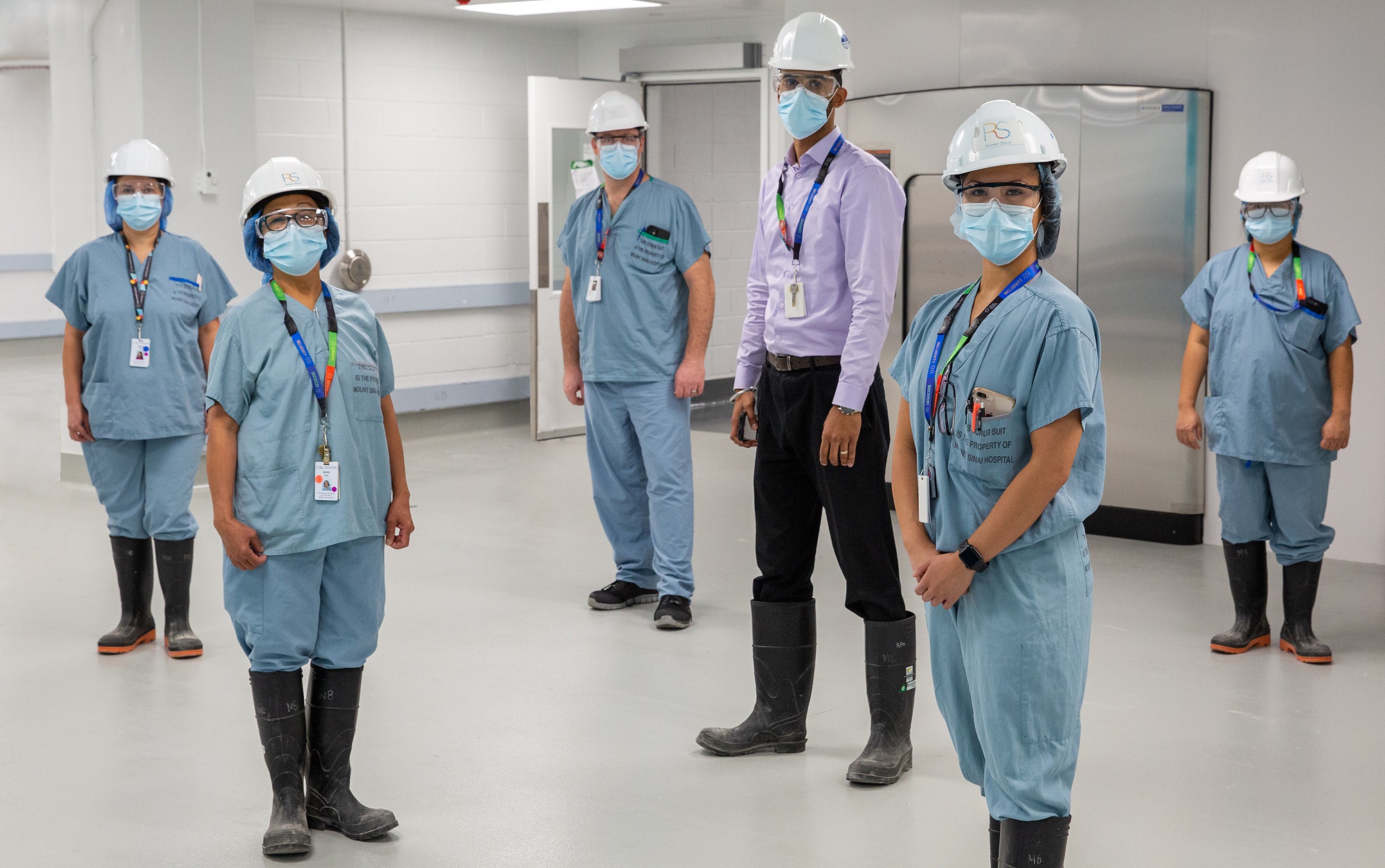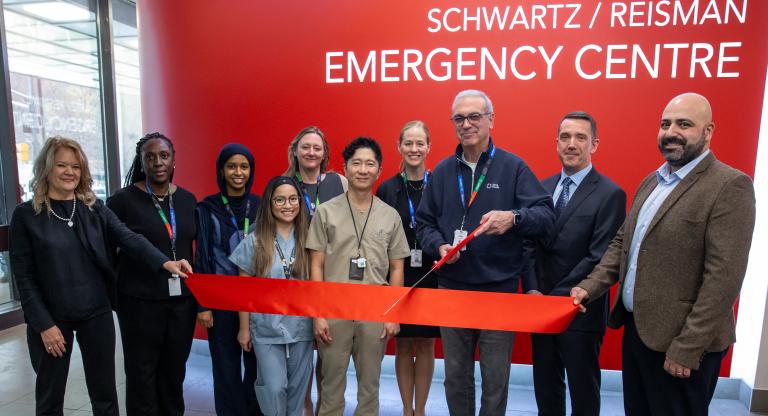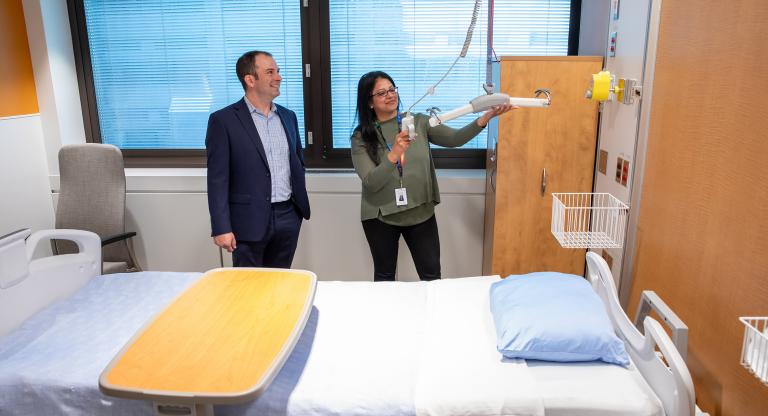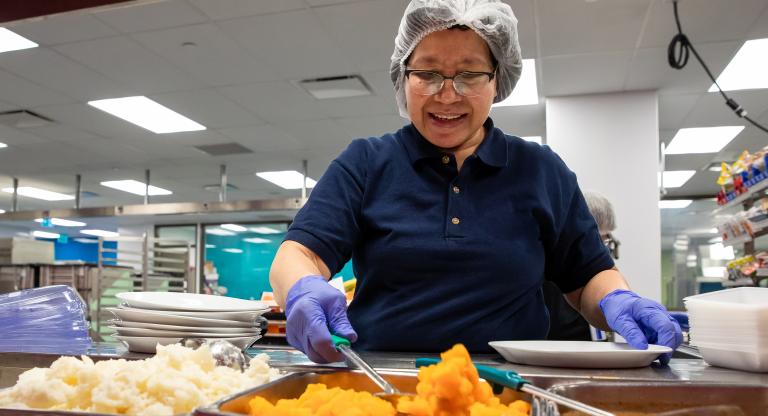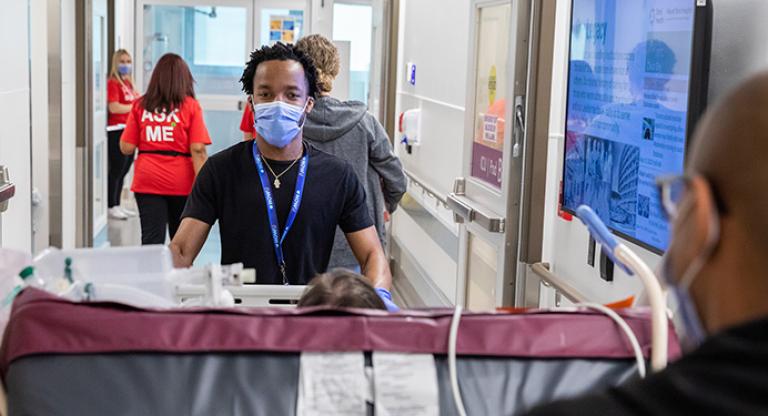Medical Device Reprocessing ─ Keeping Mount Sinai surgical patients safe
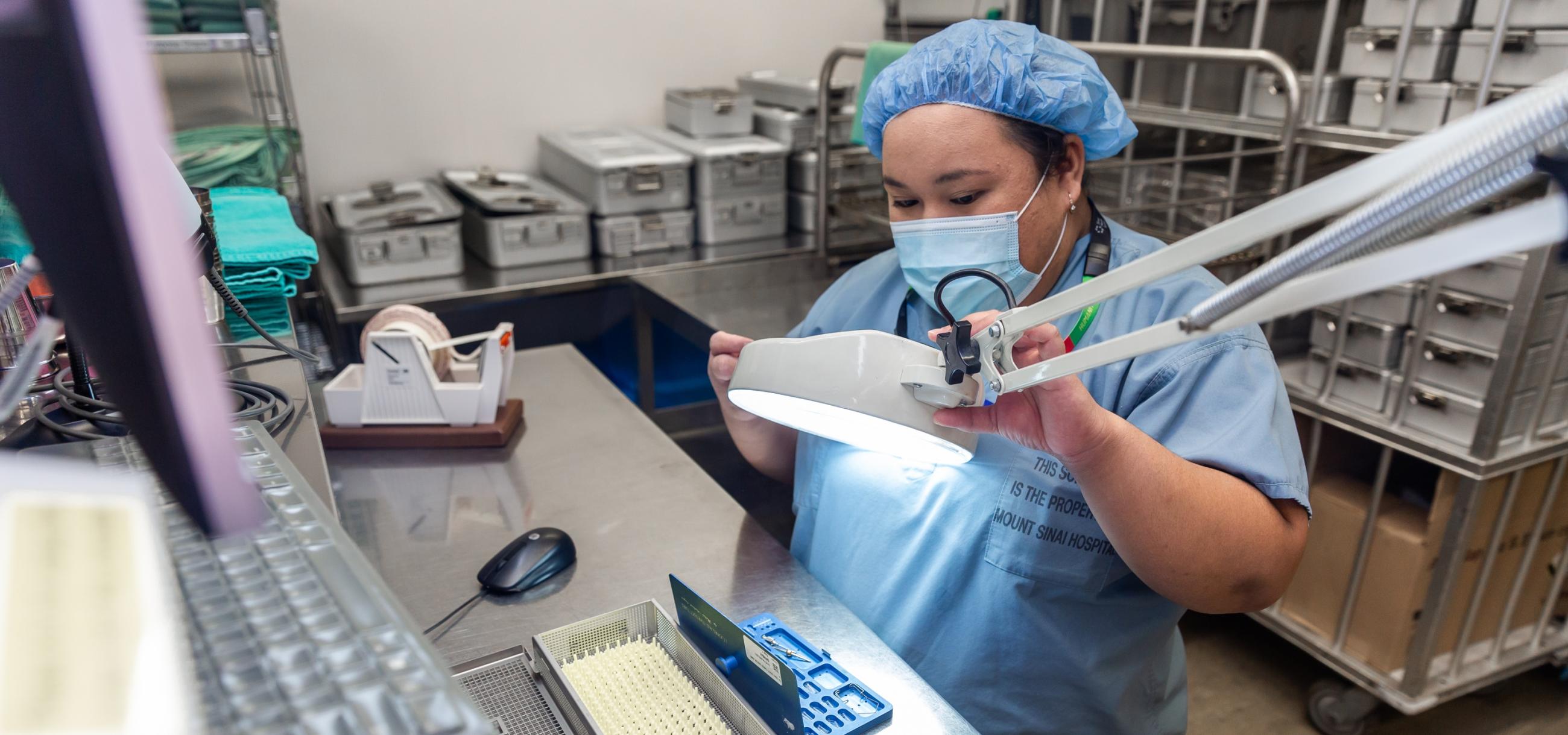
At the height of the COVID-19 pandemic, the world took notice as front-line health care workers took centre stage.
Yet less is known about the quieter, behind-the-scenes efforts hospitals conduct daily to ensure patients receive safe, high-quality care, pandemic or not. Such as the work of the Medical Device Reprocessing Department (MDRD), a critical service tucked away within Mount Sinai Hospital’s basement that reprocesses and sterilizes reusable surgical instruments and medical devices.
Judith Cojuangco is a MDRD technician who is responsible for picking and preparing surgical instruments for elective outpatient surgeries.
Originally studying to be a medical laboratory technician, she always knew she wanted to expand her medical knowledge and experience. When she learned of a medical device reprocessing technician course that would enable her to become an intricate part of surgical care, she was intrigued.
“I always thought I’d continue my studies to become a doctor, or a nurse,” she reflects. “But working in MDRD, I play such a key role in what the surgical team achieves here. And what they accomplish is nothing short of extraordinary.”
A typical surgery requires processing of up to 150 surgical devices and instruments. “Our job is to ensure that equipment is safe to be reused,” says Garry Bassi, Director of MDRD. “We do that by putting it through a variety of processes, which include disinfection and sterilization techniques. Over one million individual medical devices pass through MDRD per year, a process that is paramount to surgical success.”
In a typical day Judith assists surgeries, for which she picks, prepares and tracks the surgical set – the “package” of essential medical devices and tools required in the operating room. Some instruments, like Jones Tubes (small tubes inserted in eyelids for select eye surgeries) are so small, and so delicate, that they require specialized cleaning and bundling in the surgical set. She uses a sophisticated tracking system MDRD has implemented to ensure the contents are correct.
She credits her attention to detail and organizational skills as crucial to her job. “There’s so many layers to processing one singular device. When we prepare an instrument set we have to visualize the entire surgical process and anticipate the many needs of the surgical team. If a surgeon needs a specific instrument, we must know exactly where it’s located, what condition it’s in, and how to arrange for its sterile transportation to the operating room, quickly.”
MDRD is one of the key Areas of Transformation of the Renew Sinai redevelopment project, the largest in the history of Mount Sinai Hospital. The department will more than double the size of its footprint to implement a full-service, on site medical device reprocessing function that will support the hospital’s new and expanded operating rooms and surgical services.
With this investment, the future-proofed MDRD will be the most technologically advanced medical device reprocessing department in Canada.
